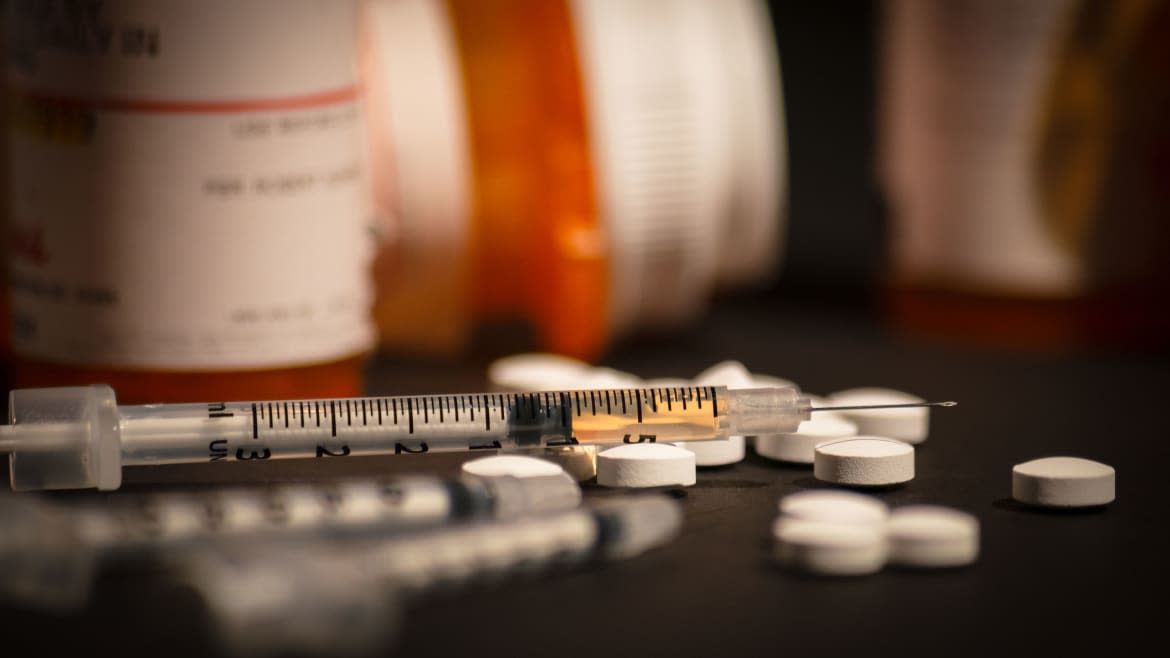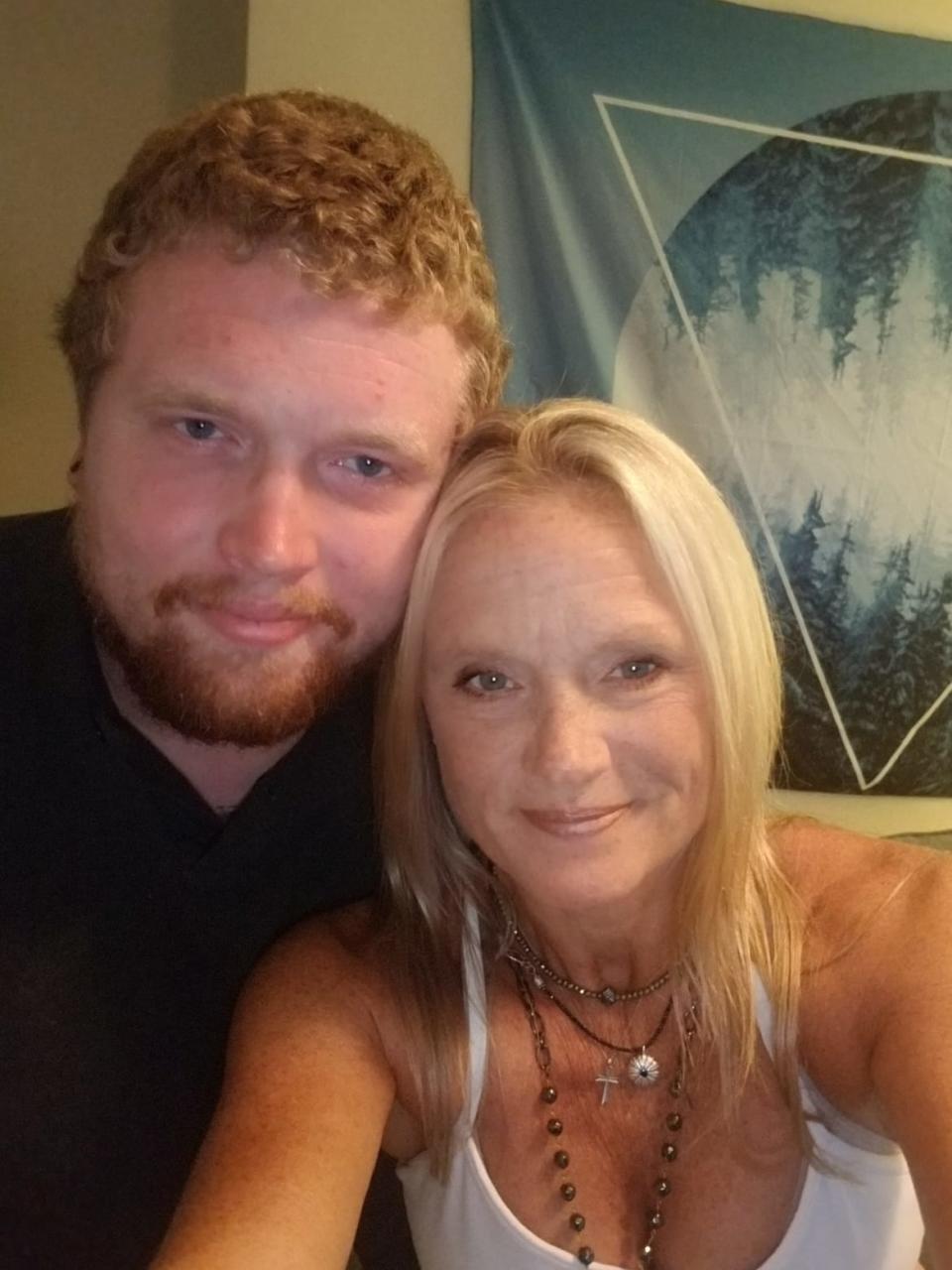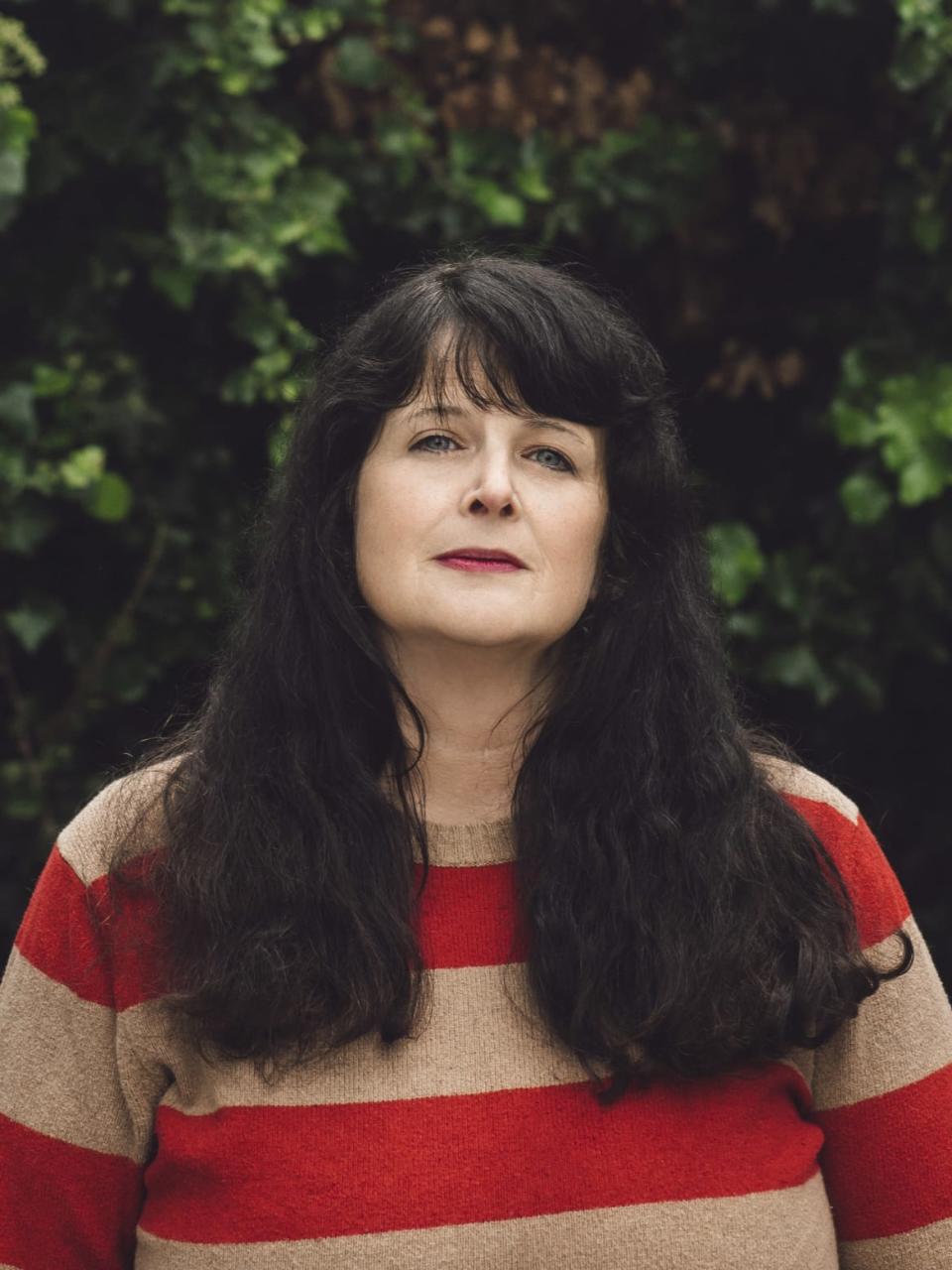The Terrifying Triple-Digit Spike in Pandemic Overdoses

After a near-fatal heroin overdose, two stints in rehab, and six months in jail, Chandler Cook finally got sober and stayed clean for more than a year. Then came the coronavirus—and the 28-year-old lost his job, and lost his way.
His mom, Michelle Holbrook, called every day but couldn’t visit because of her own health issues. But Chandler was isolated, bored, and physically cut off from the support networks he had built to stop him from relapsing.
On April 21, Michele, who lives about 45 minutes north of Jacksonville, Florida, got a phone call from one of Chandler’s closest friends.
“He said, ‘I don’t want to alarm you, but Chandler’s not answering his phone, he’s not answering his texts, I’m going to go over there,’” Holbrook told The Daily Beast. “He called back and said, ‘Michele, it’s not good.’ By the time we got there, the [Jacksonville Sheriff’s Office] was there, and he had died of a heroin overdose.
“We really thought he had gotten past that point of addiction,” she said. “He had so much going for him, and then that all dropped.”

Chandler Cook and his mom
Heroin killed Chandler Cook, but his loved ones believe the pandemic played a part—and they are not alone.
Public health experts feared that lockdowns—necessary to slow COVID-19’s devastating march across the country—could lead to more people using drugs alone, with no one to summon help if they took too much. This, combined with reduced access to treatment and an increasingly toxic drug supply, they warned, would lead to disaster.
Leo Beletsky is one of those who knew it was going to be bad; after all, some 40 states have reported increases in overdose deaths. He just didn’t realize how bad.
In a research paper published Thursday by the Journal of the American Medical Association, Beletsky, a professor of Law and Health Sciences at Northeastern University, and his co-authors, UCLA’s Dr. David Schriger and Joseph Friedman, calculated the number of overdose-related cardiac calls received by ambulance crews between January and August of this year.
What they found astonished them. As of Aug. 1, overall overdose-related cardiac calls totaled 49.5 per 100,000 EMS calls, a 48.5 percent increase over the same period during the past two years. April was the worst month, with overdose-related events soaring to 74.1 per 100,000 EMS calls, a 123.4 percent increase over the previous two years.
“A double-digit spike, in public health terms, is extremely worrying,” Beletsky told The Daily Beast. “This kind of triple-digit spike is extremely tragic, and probably unprecedented.”
Beletsky and his team used EMS data because it is timelier than the official overdose data released by government agencies like the Centers for Disease Control and Prevention, which can lag by two years or more. But, Beletsky explained, ambulance calls provide a less comprehensive data set and likely understate the issue.
“So the actual numbers may, in fact, be even more scary,” he said.
That doesn’t surprise Tracey Helton, who has lost five friends to overdoses since COVID took hold in the U.S. A sixth who relapsed killed someone else in a car accident.
“It’s really, really bad right now, and that’s coming from someone who’s been working in overdose prevention for 20 years,” Helton, a certified addiction specialist who is in recovery from heroin addiction, told The Daily Beast.
“The fabric of our lives, the social structure, has been upended,” she told The Daily Beast. “People can’t get their medications because they don't have health insurance, people are rationing medications because they don't know when they’ll be able to get a refill, people aren’t working, they’re worried about their bills, worried about getting evicted…
“In addition, you have young people who would normally be away at school—we’ve had people die at home, where nobody knew they were using drugs. Whereas before, you might have had a roommate that could have known what was going on and helped.”

Tracey Helton
A few years ago, Helton was part of a network of people who watched heroin users inject themselves on video chat and called paramedics if they saw someone overdosing. But much of today’s crucial overdose prevention work is done by community groups and volunteers, and are often limited in reach and face virtually insurmountable obstacles in ever scaling up to a national level. (Fred Muench, the president of the Partnership to End Addiction and himself in recovery for heroin use, says “the true warriors” in the overdose prevention field “are not getting paid for it—a lot of volunteers, people in recovery who want to get out there and give back. It’s just how our system is set up, our incentives are completely skewed.”)
Other countries, such as Portugal and Canada, have opened safe, supervised consumption sites that have proven to dramatically reduce overdose deaths. The U.S. has none. At one “secret” supervised injection site, somewhere in America, 33 overdoses out of 10,000 injections resulted in exactly zero deaths.
“I’m horrified that we... don’t have models for people to use safely, so they don’t overdose,” Carol Katz Beyer, who in 2016 and 2017 lost two of her three sons to overdose, told The Daily Beast. “Why aren’t we protecting them? Why aren’t we doing something about it? We essentially have a pandemic within a pandemic within a pandemic.”
Not Even 9/11 Could Shut Down AA Meetings. Coronavirus is Different.
The lockdowns and other public health measures enacted to fight COVID aren’t causing the problem, and anyone who suggests as much has it backward, according to Beletsky.
“It's not that we need to back away from COVID-19 prevention, it's that we need to tailor COVID-19 prevention measures to also address these other issues,” he said. “And so, when we're talking about substance use, there are ways in which we can design COVID-19 responses to also address substance-use risk and overdose risk. There are very specific proposals on how to do that. But we just, you know, really haven't done it.”
Get our top stories in your inbox every day. Sign up now!
Daily Beast Membership: Beast Inside goes deeper on the stories that matter to you. Learn more.


